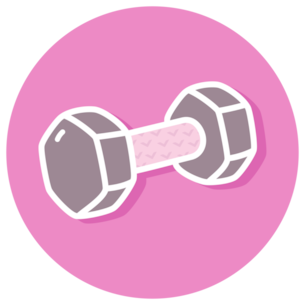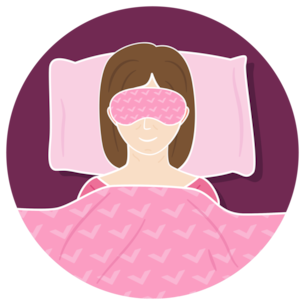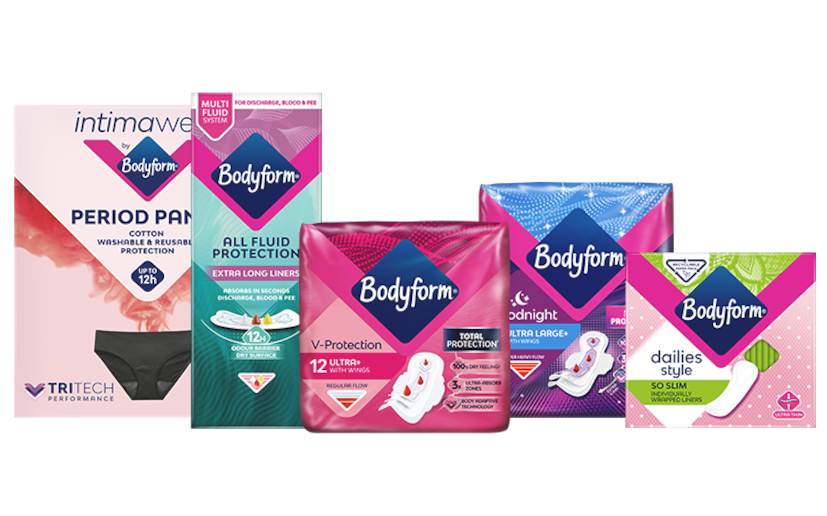Understanding weight gain during menopause

Menopause can change our bodies in ways that we might not expect. One of these common surprises during the menopausal transition is weight gain, which can take a toll on our health if it goes unchecked. But fret not! We’ve got the lowdown on how to manage it.
Weight gain during menopause is completely natural and not necessarily something to worry about in itself. That number we see on a scale measures the force gravity has on us. In other words, weight is what keeps us grounded and prevents us from floating away into space. This means it doesn’t say much else on its own: not about our beauty, value, or even health. That’s why it’s important to understand it a bit better. So we'll explain why weight gain happens, how it can affect you, and offer helpful advice on how to manage it, while learning to embrace your new body shape with confidence.
Why does menopause cause weight gain?
Gaining weight is widely talked about as a symptom of menopause. But this is more down to ageing rather than menopause itself.
As we age, our muscle mass decreases and we gain fat a bit quicker, which can affect our metabolism (the way our bodies use calories from what we eat and drink). This means that if we don’t make extra efforts to balance our metabolism, our muscles stagnate or even reduce, and the fat starts to accumulate. That’s why it’s important to keep in mind that weight is just a number — what that number is made of is what really counts: 1 kilo of muscle and 1 kilo of fat weigh the same, but one is good for your health and the other not so much (in excess). Our ageing metabolisms are behind the weight gain, but the menopausal phase affects where the fat gets stored in our bodies.
From perimenopause on, fat tends to be stored around our waists and bellies instead of around our hips and thighs. This is sometimes known as "menopause belly". But it's not just body fat storage and distribution that can cause our body to look a bit different. Increased levels of oestrogen correlate with water retention, which is when fluid gets trapped in an area of your body, leading to puffiness and swelling.
Another factor that contributes to menopausal weight gain is an increase in stress hormone (cortisol). Whether you have external stress factors (like work or family life) or not, cortisol increases naturally due to the oestrogen decline caused by menopause. As we age, rising cortisol levels not only cause an increase in appetite, but also makes us crave sweet, salty, and fatty foods.
When does menopause weight gain start?
Weight gain tends to start during the transitional stage leading up to menopause, known as perimenopause. This can continue through your entire menopause journey and into postmenopause, the stage after your periods have stopped for 12 months in a row.
However, just like with all menopause symptoms , exactly when they will happen will be unique to you.
How much weight do you gain during menopause?
What are the effects of gaining too much weight in menopause?
- High cholesterol
- Heart disease
- Type 2 diabetes





Find an exercise routine that you enjoy
Try making healthy changes to your diet
What are the best foods to prevent menopause overweight?
- Fruits & vegetables
- Whole grains (wholemeal bread, rice, oats etc.)
- Lean protein (chicken, turkey, fish etc.) [4]
What are the best foods for bone health?
What are the best foods for heart health?
- Avoid saturated fat (found in foods like processed meat, chocolate, and butter)
- Add fish, nuts, beans, and pulses into your diet
- Increase your fibre intake with whole grains
- Reduce your intake of refined sugar and salt
- Opt for grilling your food instead of frying it
Are “cheat days” ok?
Cut down on alcohol
Get a good night’s sleep
Medical disclaimer
The medical information in this article is provided as an information resource only and is not to be used or relied on for any diagnostic or treatment purposes. Please consult your doctor for guidance about a specific medical condition.
This article has been reviewed on 19th April 2024 by Karen Joash BSc (Hons), MSc, MBBS, MRCOG PGCert, ILM and MBA, Consultant Obstetrician and Gynaecologist at Queen Charlotte's and Chelsea Hospital and The Portland Hospital for Women and Children. You can find out more about mS Karen on her LinkedIn and X pages.
[References]
[1] https://www.womenshealth.gov/menopause/menopause-and-your-health
[2] https://www.mayoclinic.org/healthy-lifestyle/womens-health/in-depth/menopause-weight-gain/art-20046058
[3] https://www.betterhealth.vic.gov.au/health/conditionsandtreatments/menopause-and-weight-gain
[4] https://www.everydayhealth.com/menopause/healthy-foods-to-eat-during-menopause/
[5] https://naplab.com/guides/how-many-calories-do-you-burn-sleeping/
[6] https://www.hopkinsmedicine.org/health/wellness-and-prevention/how-does-menopause-affect-my-sleep
Continue learning


